Cybersecurity Best Tips for Remote Workers in 2023

Do you know Cybersecurity Best Tips for Remote Workers in 2023? With the rise of remote work, cybersecurity has become an increasingly important concern for individuals and businesses a like. Cybercriminals are always looking for new ways to exploit vulnerabilities, and remote workers are particularly vulnerable to attacks. In this article, we’ll provide you with some of the best tips for remote workers to stay safe and secure in 2023.
Read More: Top 10 Tips for a Successful Cybersecurity Career 2023
Introduction
Remote work has become a popular option for many individuals and businesses, but it comes with its own unique set of challenges. One of the biggest challenges is cybersecurity. Remote workers are often working on devices that are not as secure as those in an office setting, and they are more vulnerable to cyberattacks. This is why it is crucial for remote workers to take proactive steps to protect their devices and data.
Secure Your Devices
The first step in protecting your devices is to ensure that they are secure. This means installing antivirus and anti-malware software, using a firewall, and enabling automatic updates. You should also set up a lock screen and use biometric authentication, such as a fingerprint or facial recognition, to ensure that only authorized users can access your device.
Use Strong Passwords and Multi-Factor Authentication
Strong passwords are a critical component of cybersecurity. A strong password should be at least 12 characters long and include a mix of uppercase and lowercase letters, numbers, and special characters. You should also enable multi-factor authentication (MFA) whenever possible. MFA adds an extra layer of security by requiring users to enter a code sent to their phone or email in addition to their password.
Avoid Phishing and Social Engineering Scams
Phishing and social engineering scams are common tactics used by cybercriminals to gain access to sensitive information. These scams often involve sending an email or message that appears to be from a legitimate source, such as a bank or coworker, and asking the recipient to provide personal information or click on a malicious link. To avoid falling victim to these scams, be cautious of unexpected emails or messages, double-check the sender’s email address or phone number, and never click on links from unknown sources.
Keep Your Software Up to Date
Software updates often include security patches that address known vulnerabilities. It is essential to keep all your software up to date, including your operating system, web browsers, and applications. Most modern software includes automatic updates, but you should still check for updates regularly.
Use a VPN
A virtual private network (VPN) encrypts your internet connection and hides your IP address, making it more difficult for cybercriminals to intercept your data. If you frequently work on public Wi-Fi networks, using a VPN is highly recommended.
Be Careful with Public Wi-Fi
Public Wi-Fi networks are often not secure and can be easily compromised by cybercriminals. If you must use public Wi-Fi, avoid accessing sensitive information such as your banking or email accounts. Additionally, you should avoid using public Wi-Fi for online shopping or other activities that involve entering personal information.
Back Up Your Data Regularly
Backing up your data is one of the most important things you can do to protect yourself from data loss. Data loss can occur for a variety of reasons, including hardware failure, cyberattacks, and human error. Without a backup, it can be difficult or impossible to recover your lost data.
Use Cloud Services with Caution
Cloud services can be a convenient way to store and access your data, but they also come with their own set of risks. Before using a cloud service, make sure you understand the security measures in place and the privacy policy. Additionally, avoid storing sensitive information on cloud services that are not encrypted or that do not use multi-factor authentication.
Be Mindful of What You Share Online
Be mindful of the information you share online, especially on social media platforms. Cybercriminals can use the information you share to gain access to your personal and professional accounts. Avoid sharing sensitive information such as your home address, phone number, or financial information online.
Educate Yourself on Cybersecurity Best Practices
Staying up-to-date on the latest cybersecurity best practices is crucial for remote workers. Attend webinars or training sessions offered by your company or external organizations. You can also find helpful resources online, such as cybersecurity blogs and forums.
Take Breaks and Practice Self-Care
Finally, it’s important to take breaks and practice self-care. Working remotely can be stressful, and it’s easy to become overwhelmed. Taking regular breaks and practicing self-care can help you stay focused, motivated, and mentally healthy.
Read More: 7 Best Cybersecurity Solutions in 2023
Conclusion
As remote work continues to grow in popularity, it’s essential to prioritize cybersecurity. By following the tips outlined in this article, remote workers can protect their devices and data from cybercriminals. Remember to stay vigilant, keep your software up to date, and be mindful of what you share online. By taking proactive steps to protect yourself, you can enjoy the benefits of remote work without sacrificing security.
FAQs
What should I do if I suspect a cyberattack?
If you suspect a cyberattack, immediately disconnect your device from the internet and contact your IT department or a cybersecurity professional.
Is it safe to use public Wi-Fi for general browsing?
While public Wi-Fi can be convenient, it is generally not safe to use for general browsing or accessing sensitive information.
Can a VPN completely protect my data?
While a VPN can help protect your data by encrypting your internet connection, it is not a foolproof solution. It’s still essential to follow other cybersecurity best practices.
How often should I back up my data?
You should back up your data at least once a week, but more frequently if you work with sensitive information or frequently create new files.
What should I do if I accidentally click on a suspicious link?
If you accidentally click on a suspicious link, immediately disconnect from the internet and run a virus scan on your device.
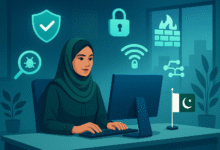




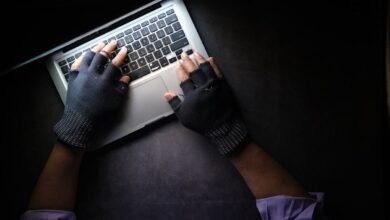

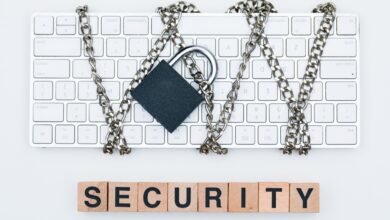
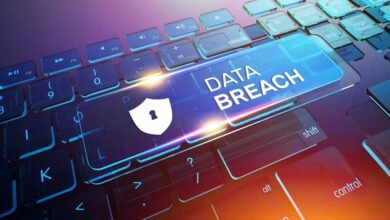


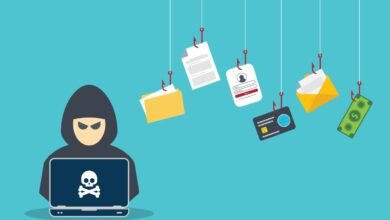
3 Comments